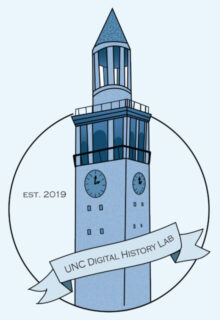January 12, 2023
Happy spring semester! We hope you had a restful break and are excited to learn about and use digital history over the next few months. This week’s newsletter focuses on the importance of digital archives and collections as methods of preservation, with stops at Cornell, Utah State University, and the National Museum of American History.
1. Canvas Technical Support
Faculty and graduate students, if you would like to schedule an appointment regarding the transition to Canvas, please click here.
2. Bell Sound Recordings
Between 1881 and 1892, Alexander Graham Bell, alongside researchers at his Volta Laboratory, created a series of records considered some of the earliest known sound recordings. The technology they developed was “foundational to the emerging music, broadcast and entertainment industries, and to the documentation of worldwide cultures and endangered languages through ethnographic fieldwork,” and the Smithsonian National Museum of American History will use noninvasive technology to digitize Bell’s recordings. You can read the article here.
3. COVID-19 Oral Histories
“A digital collection of Utah State University administrators, faculty, staff and student oral histories pertaining to the COVID-19 Pandemic is now available to the public through USU’s Institutional Repository,” wrote Kellianne Gammill with Utah State Today. Staff at the University’s Libraries and Special Collections sought to create an archive that future researchers could reference when studying the COVID-19 pandemic. The oral histories document how the pandemic influenced life at Utah State and impacted its’ students and faculty. Check out more about this project here.
4. Freedom on the Move
Based out of Cornell University, the Freedom on the Move database collects “runaway ads” from American newspapers during enslavement. The database seeks to use the information in the 32,000+ ads collected to create detailed depictions of enslaved persons and aid in genealogical and historical research. Visit the database here.
Make sure to contact the Digital History Lab if there are any skills you want to learn, need support with your own digital history projects, or are interested in our podcast!
Thanks for reading,
The DHL Team (Cameron, Madeleine, & Sarah)

